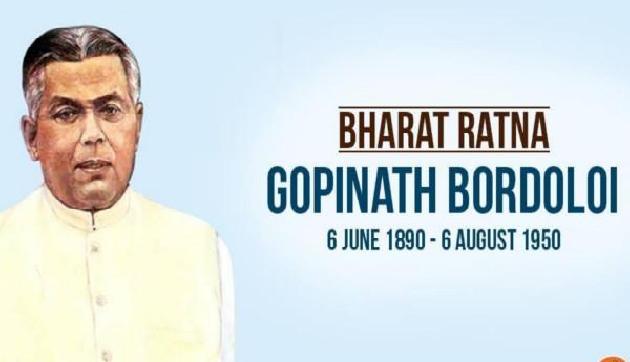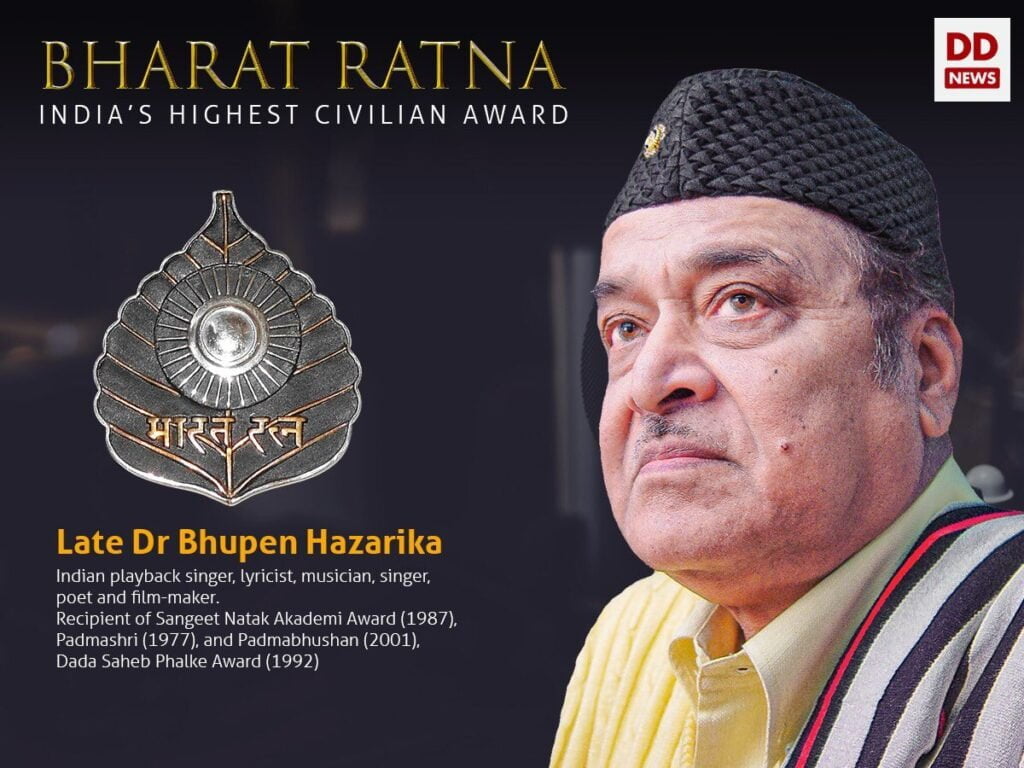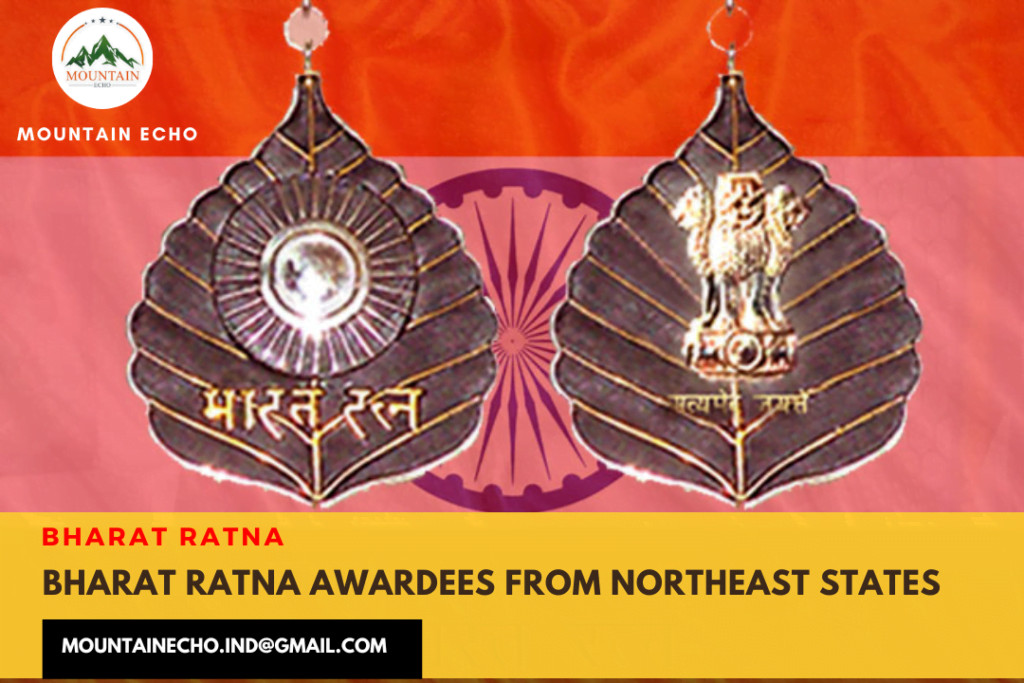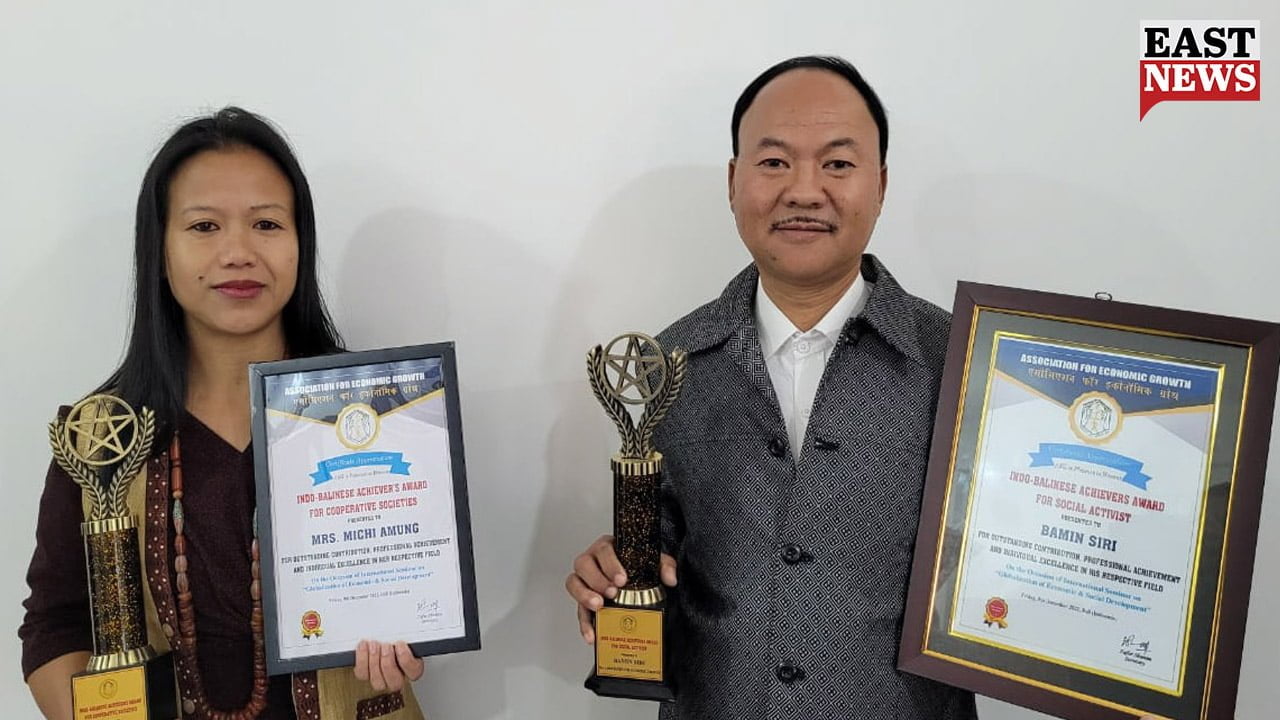Bharat Ratna Awardees from the Northeast states
WhatsApp Channel
Join Now
Bharat Ratna is the highest Civilian Award which literally translates to ‘Jewel of India’. The Award was initiated in 1954 as a recognition of exceptional service or performance of the highest order and is awarded without distinction of race, occupation, position, or sex.
The Bharat Ratna Award was suspended from July 1977 to January 1980 during the emergency period.
A maximum of 3 persons are awarded the Bharat Ratna Award every year under the recommendations of the Prime Minister to the President. The Bharat Ratna award recipients rank seventh in the Indian Order of Precedence (protocol). Recipients receive a peepal-leaf–shaped medallion and a Certificate (Sanad) signed by the President of India.
Till date, 16 People were awarded after their death (posthumus). Two non-Indians – Khan Abdul Ghaffar Khan of Pakistan and Nelson Mandela of South Africa – have received the Bharat Ratna Award. Mother Teresa although born as a non-Indian received the Bharat Ratna as a naturalized Indian citizen for her works at the Missionaries of Charity, Kolkata.
The order of precedence for the Civilian Awards:
- Bharat Ratna
- Padma Vibhushan
- Padma Bhushan
- Padma Shri
Gopinath Bordoloi (posthumous)
The statesman who ensured that Assam remained in India in the critical months leading up to Partition. Independence activist Bordoloi is the first Chief Minister of Assam (1946–50). His efforts and association with the then Minister of Home Affairs Vallabhbhai Patel were widely acknowledged while keeping Assam united with India when parts of it were to merge with East Pakistan.

His early years as a political leader were marked by frequent clashes with Sir Syed Mohammed Saadulla of the Muslim League. In 1939, Gopinath Bordoloi wrested powers from the Muslim League leader and pro-British Sir Syed Mohammed Saadulla.
The Muslim League government had pushed through a series of measures that continue to devastate Assam and the North-east, including the 1941 Land Settlement Policy that encouraged immigrants from East Bengal to come to Assam and hold as much as 30 bighas or more for each homestead.
If not for Bordoloi, Assam would have been handed on a platter to the future East Pakistan under a compromise formula because the Muslim-majority Bengal had more members than the Hindu-dominant Assam.
Bhupen Hazarika (posthumous)
Bhupen Hazarika was an Indian playback singer, lyricist, musician, singer, poet and film-maker from Assam, widely known as ‘Sudhakantha’ and the ‘bard of Bharmaputra’. He has sung, composed, and written songs in the Assamese language based on the themes such as communal amity and universal justice and empathy.

Bhupen Hazarika received the National Award for Best Music Director in 1976 for Chameli Memsaab and President’s medal for his films Shakuntala (1960), Pratidhwani (1964) and Lotighoti (1967). He was a member of the Assam Legislative Assembly from 1967-72 and was awarded the Padmashri in 1977, Padmabhushan in 2001, and the Sangeet Natak Akademi Award in 1987. He was the chairman of the Sangeet Natak Akademi from 1999-2004 and also awarded with Dada Saheb Phalke Award (1992).
Telegram Channel
Join Now

